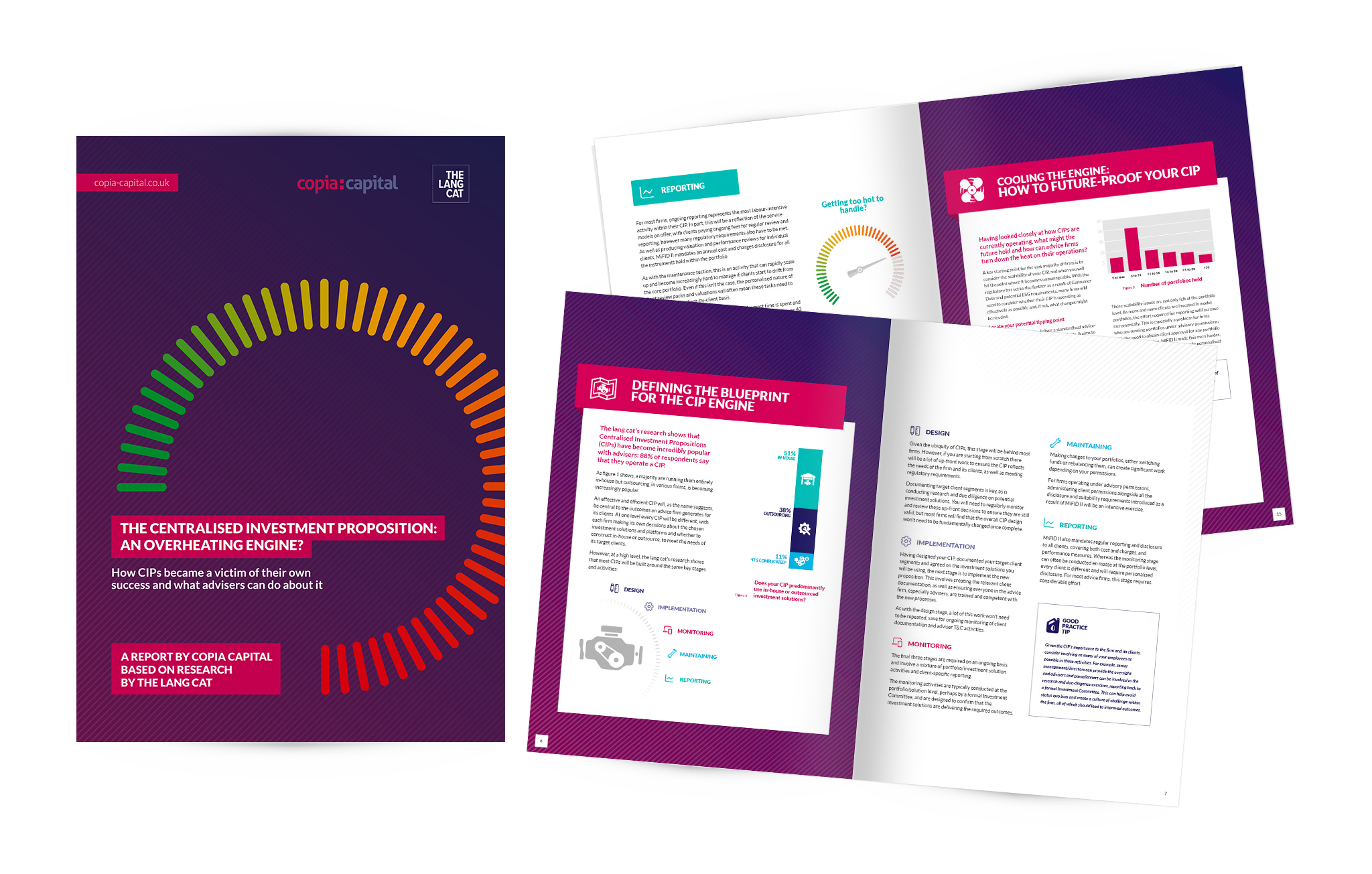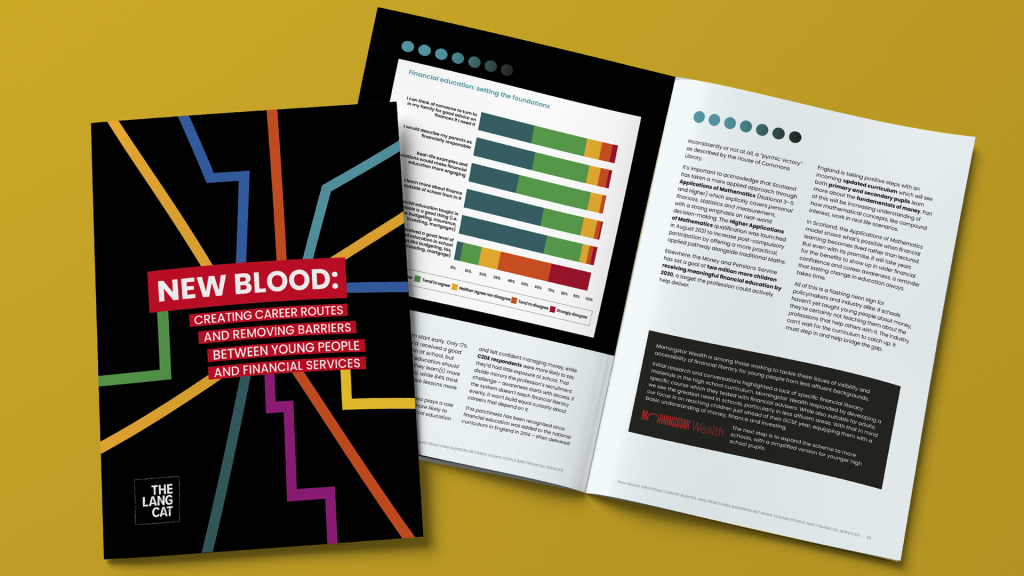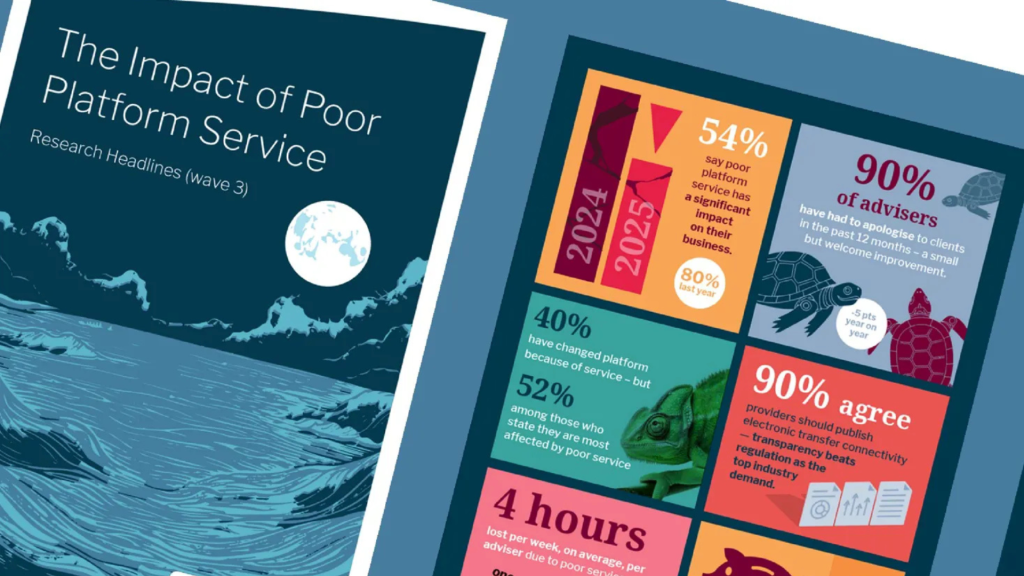Our research for Copia Capital looks at how Centralised Investment Propositions (CIPs) became a victim of their own success and what advisers can do about it
Given the importance to CIPs to client outcomes, Copia wanted to better understand how they work in a typical advice firm and to help advisers ensure their CIP is operating effectively, delivering the best possible outcomes for the firm and its clients.
We talked to more than 100 advice firms about:
- What drove them to build a CIP in the first place?
- What benefits are they seeing?
- Are firms running portfolios in-house, or outsourcing. If firms are outsourcing, what drives them towards this decision?
- Is there a tipping point where a CIP is likely to become unworkable?
- What are the key areas of overheating risk in the CIP ‘engine’?
Some of the key findings and conclusions:
- 97% of respondents think that CIPs are in danger of overheating and will soon reach a tipping point where they become unworkable.
- Operational difficulties have increased as CIPs have grown in size and complexity, particularly when it comes to the ongoing management of model portfolios.
- The time and complexity involved in CIP design, implementation, monitoring, maintenance and reporting are the key drivers of operational ‘overheating’ risk; the average firm spends 71 days per year on operating their CIP.
- The regulatory burdens of MIFID II have increased the pressure on CIP operation, and Consumer Duty is likely to make the situation worse.
- Outsourcing the operation of a CIP can make a significant difference but only if done right.
The Copia report is free, and you can download it from their website here.






